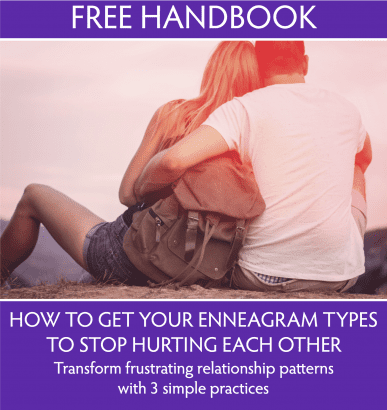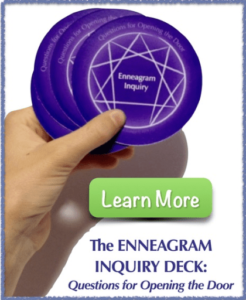In love, how much does compatibility matter?
A conclusion you’ve probably heard during break ups is this: “We were ultimately just not compatible.” This could mean any number of things.
That matter-of-fact sounding conclusion could mean:
- We annoyed each other so much that we stopped feeling fondness toward each other.
- We realized that we didn’t actually respect each other’s values.
- We were baffled by complex conflicts and mismatches in our expectations.
- We didn’t know how to stop hurting each other through our default approaches to getting our needs met.
- It was hard to learn the lesson(s) that the relationship was offering to us.
What do we mean by “compatible?”
A dictionary definition describes compatibility as the ability to abide together harmoniously without problems or conflict.
In most long-term relationships, to expect a relatively consistent state of “compatibility” like this would be unrealistic and maybe even unnatural. Even in couples who don’t outwardly show their upset, conflict still exists.
Another definition of compatibility emphasizes the a feeling of sympathy, friendship, or like-mindedness. This one works better for me, as one can experience those feelings even during conflict. It is probably also the feeling that people typically mean they’ve lost when they say they’re incompatible.
It’s kind of amazing, isn’t it, that the person we used to think the world of becomes someone who doesn’t seem like a friend, who doesn’t evoke sympathy in us? What happens here?
Long-term relationships usually strike a balance of familiarity (a sense of comfort and understanding) and novelty (a sense that this will be more fulfilling, exciting, etc.). What’s funny is that both familiar and novel qualities can become annoying in relationship. We could consider that that’s even part of the plan.
You know the story: a relatively healthy couple falls in love. She falls for him because he’s jovial and warm like her father was, but also more steady and sensitive. He falls for her because she’s intellectual like his father and leaderly like his mother, and yet she also seems more up for adventure and play than either of them did. A perfect upgrade from the original relationship model! Right? Yes.
Give them several months or years and they feel tricked— like there was false advertising. Where is her sense of adventure now? And why does she think she can boss him around? Why is he so avoidant? Why does his warmth get diverted to their kids and friends and not her anymore?
NOTE: This is the perfect upgrade from the original relationship model. It’s not a failure that we find ourselves hurting and annoying each other.
Of course we don’t like to feel this way. It’s incredibly painful when the ones we look to for comfort and affection seem like our persecutors. Our frustration is a pointer to where we need to grow. “Or where my partner needs to grow thank-you-very-much!” you may be thinking. Yes, that too.
What’s tragic is that our cultures rarely give us the support we need in order to hear, interpret and respond to this call for our personal and relational development. Instead, we make the suffering about us, about failure, or about “incompatibility.”
Conflict: Get Used to It
All people have conflict. It’s not only inevitable, it can be seen as generative, life-giving, and maturing for our relationships. Unless we have some tools, however, it can feel destructive, isolating and regressive.
What I will concede about compatibility, in terms of conflict, is that the more we have in common in our world-views, demographics, and upbringings, the less likely it is that we’ll have persistent and disturbing conflict in the forefront.
This doesn’t mean that if we have many differences in those areas that we’re doomed to a dissatisfying and hurtful relationship. When we don’t share similar backgrounds and outlooks, we just need to become good bridge builders and translators. Coaching, counseling, couples retreats, and practicing good relationship tools can pave the way for this.
As an example, John is a musician in his mid-forties who grew up in Southern California and comes from the Four point of view on the Enneagram. His partner, Lars, is a Swedish emigrant in his mid-twenties who is currently trying out different professions. Lars comes from a type Five point of view.
John and Lars share a wry and offbeat sense of humor. They love avant-garde movies, playing basketball, cooking together, and planning trips. John loves how secure Lars seems in himself, and appreciates the vitality his youth brings to the relationship. Lars is drawn to John’s depth, and feels supported to bring his emotions forward in ways he hasn’t known before.
After some time, Lars begins to feel uncomfortable with what he feels as John’s neediness and possessiveness. John wants commitment and emotional intimacy and feels unmet. Trouble’s a-brewing… or is it?
Redefining Compatibility
Rather than defining compatibility as a feeling of friendship or an absence of conflict, what if we looked at compatibility from the angle of personal development?
When we don’t feel fondness or ease, we may still be “compatible” if we can interpret our dissatisfaction in a way that supports reflection and turning toward one another.
John Gottman PhD, the well-renowned couples’ therapist and researcher, sees that there are four primary conflict styles: avoidant, validating, volatile, and hostile. While you might think the second in the list is what style we’re “supposed to” use, it’s not necessarily so. The first three, avoidant, validating and volatile can all work well if individuals are well matched and/or can make accommodations for their different approaches. Hostile couples are in real distress and need professional help (or separation if harm is indicated). It may not be safe to open up vulnerable territory when attack and belittlement are the norm.
So, compatibility may have a lot to do with how we think conflict should be dealt with. In conflict, Lars tends to withdraw, avoid and reflect internally. John wants to bring it forward right away to have an emotional catharsis and reconnection. Unless they are willing to see that neither style is wrong and that an accommodation is needed, they will likely continue to feel intruded upon, rejected, shut out, desperate, and overwhelmed. Help!
No wonder we think we might not be compatible when we repeatedly trigger such difficult emotions in each other and don’t know how to reconnect.
To work with differences in conflict styles, or with the limitations of similar conflict styles, we need to be interested in growth. Or at least to be willing to grow for the sake of a more satisfying exchange.
So, perhaps compatibility also has to do with how much we are willing to show up for growth.
Couples therapist David Schnarch wrote:
Did I pick the right person? This question inverts the starting and ending points. We do not pick our perfect match because we ourselves are not perfect. The universe hands us a flawless diamond—in the rough. Only if we are willing to polish off every part of ourselves that cannot join do we end up with a soul mate.
Partners can be reluctant to head into conflict with the aim of personal development if they don’t feel safe. It is often vulnerable work to reveal our inner territory to the person we see as rejecting or hurtful. If there is a tendency to get defensive, attacking, or overwhelmed in working through conflict, professional help may be indicated.
It is often heartrending, if normal enough, in my work when couples come for help after years, or even decades, of repeating and reinforcing these painful patterns. Gottman has found that couples wait six years of unhappiness on average before coming in for help. That’s on average. That’s a long time to be in distress reinforcing our sense of helplessness and negative beliefs.
When Enneagram teacher and author David Daniels MD is asked “Which Enneagram type should I be with or avoid in relationship?” he regularly replies, “Someone you like and who likes you.” And then he’ll add, “Someone who is healthy and willing to work on themselves.”
What about Type Compatibility?
Aren’t certain Enneagram types more compatible with one another than others?
While some pairings of types are more common than others, particular type-combinations will not predict relationship success. An individual’s level of development, capacity, and willingness to work on the relationship is really the key.
Every variety of Enneagram type combination will have conflict or “compatibility” issues. Even people of similar enneatypes or similar instinctual subtypes will have regular conflict. Difference naturally engenders conflict. Conflict is not to be avoided. It is asking to be met. Asking us to develop. This is true even in couples with an “avoidant” conflict style who might claim “we almost never fight.”
It is painful when we try to work through issues in our relationships and feel stuck or helpless. Sometimes we don’t feel we have the capacity or willingness to digest what’s needed to go forward. Sometimes we don’t feel we have the resources to support us in facing what’s in our way. Sometimes we do our best, and our beloved doesn’t seem able to meet us there.
The key in working with our differences is understanding the beliefs and needs our conflicts spring from, and being able to attend to ourselves and one another at that level.
For example, type Two and type Eight often have a natural attraction to one another. Two’s warm heart melts Eight’s armor and sees the goodness inside. Eight’s passion and generosity creates a sense of dynamic connection and validation for Two.
Among other themes, conflict here could arise around Eight’s value on truth and directness (sometimes hard for Two) and Two’s need to being liked (Eight may see this as weakness, manipulation). Without knowing the values and viewpoints at play, they are at higher risk to spiral into disconnection or anger.
One opportunity here is for Two to stand up directly for important needs, and for Eight to stay in touch with the heart when triggered.
Type Patterns: How They Help and Hinder Us
We adapt, often unconsciously, to try to balance out our relationship systems. Each Enneagram type will create a typical imbalance, which, over time, partners and others will automatically feel the need to temper or balance out.
So are we doomed to irritate each other? Sometimes it seems that way.
Our relationships do consistently confront the limitations of our types and our conditioning. With awareness and compassion, this illumination of what’s blocking us from connection can be just what we need.
Our type strategies will continue to insist that they’ve got the solution. At point One, when my relationship is stressed, I might tell myself to try harder and do better, which just intensifies my attempts to control where it’s going and my sense of over-responsibility.
In this case, the One program continues to stress me out and my relationship too. My type pattern will not come up with suggestions like, “Maybe I could relax into this and open my heart to myself,” or “what if I recall the basic goodness in myself and the other before speaking.”
This kind of opening comes from an aspect of us that is not caught in our Enneagram script. We can find our way there when we can see and relax the ordinary inner regime.
Below are some typical ways in which each type’s strategy to be OK gets off-kilter in relationship. This list is not exhaustive by any means.
Enneagram Type Imbalances in Relationship
Type 1 Tendency to control and criticize leaves others rejected, micromanaged.
Type 2 Not caring for the self breeds resentment. Others feel manipulated.
Type 3 Over-action and bypassing emotions creates loneliness, emptiness.
Type 4 Over-identifying with emotions destabilizes connection.
Type 5 Independence and withdrawal leave others anxious about connection.
Type 6 Doubt and anxiety undermine presence. Others feel tested, mistrusted.
Type 7 Future-focus and multi-tracking have us miss out on the here and now.
Type 8 Pushing away vulnerability shuts down the heart. Others shrink or tiptoe.
Type 9 Conflict avoidance prevents closeness. Others can feel neglected.
Thank goodness our types also bring resources. Despite all the potential ways in which we can get our wires crossed, we persist in relationships with some success. With practice working with ourselves, our strengths begin to feel more accessible in those hard moments.
Enneagram Type Strengths in Relationship
Type 1 Desire to improve the self and to do right by the other. Integrity.
Type 2 Compassion, care, service. True interest in others’ welfare.
Type 3 Adaptability to make the relationship work. “We can do this!”
Type 4 Capacity for depth and empathy, especially in difficulty.
Type 5 Steadiness, reflection, honesty.
Type 6 Loyalty. Willingness to work it through, be there for the other.
Type 7 Optimism. The assumption that we can all get our needs met.
Type 8 Protection and tenderness. Appreciation for conflict.
Type 9 Loving acceptance. Steadfastness.
Now that you know that disconnection and conflict are normal, natural, and maybe even part of the plan to help us develop, how might that understanding affect you next time you feel disconnected?
An Invitation for You
Consider an imbalance that your type engenders in relationship that you’d like to become more aware of. Watch for it this week, and notice how it feels in your body when it arises.
If it’s hard to notice these patterns, you can ask for help from those who know you well to help you notice them (with love). If you would like help understanding and working with these patterns, I love to help people get freedom from their old patterns.
When you are able to notice the imbalance, see if you can simply be with it and breathe. Shining the light of awareness on our patterns, without indulging them or denying them, allows something new to arise.
I’d love to hear your thoughts on Enneagram type compatibility, or how you manage the relationship imbalances that your type creates. Please share below.










11 Responses
This is great, Sarah.
Thanks Ashley. Glad it resonated.
Much to process as I have moved beyond wanting to stay where I am. Looking forward to learning and developing within myself so I can be a healthier female. Thank you, Glenna
You’re welcome, Glenna. Here’s to the great adventure of growth!
Reading the imbalances of types was, not so much a revelation, as finally being able to put words to what I knew was there, but was unable to articulate. I’m a 6 and she’s a 1. Explains a great deal about why the relationship ended. Unfortunately. Thanks.
Thanks for sharing, John. Articulating where we run into obstacles with our styles is one of the Enneagram’s “gifts” if you will- though it doesn’t always feel like a gift.
I’m a 3 and my ex-boyfriend is a 9. He very abruptly ended the relationship because he said our “futures don’t align” but there was no previous discussion about this and it seems dumb because it would be easy to make our futures work. Am I missing something? Do you think there’s a chance of us getting back together? Sorry I know this probably isn’t a comment box for relationship problems, I am just so curious if you know anything about this.
Hi Emily- you’re right, I won’t go into a full discussion about this in this format, but it sounds like there’s definitely some good learning in this experience. It seems quite possible that the mis-“alignment” your ex is referring to may have to do with enneagram styles and their different perspectives. If you’d like to explore this further with me, we could set up a time to talk.
Hi Emily! I am no where near a professional and the writer of this post is much more likely to give you a better and more in depth answer here. I’ve been really intrigued by the enneagram types the past couple weeks and I’m a type 9 myself. From what I’ve been reading (and past relationship experience) is that our conflict avoidance can be a negative as much as a positive. As we tend to avoid conflict a problem can cycle up to to point of unbearable while our partner is seemingly unaware. I have a tendency to hold on to a relationship until it’s past dead and by the time I say goodbye, my decision has been made for a while & the likelihood of going back is very low. I’m sure this isn’t a rule and
no one but you know how your relationship worked, but that might be a little insight?
Hi Sarah, I attended your recent seminar, took the test, and learned I am Type 7 with Type 2 very close. Type 4 also resonates. This post is helpful and illuminating in helping me understand my place in relational struggle and suffering. I will set up a time to talk further. Thank you.
Thanks for sharing Jim. When we understand how we’re contributing to our own and other people’s suffering it can feel difficult, but ultimately, I hope, empowering to see our way through. I look forward to connecting.